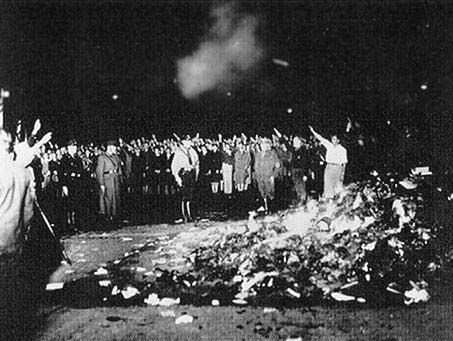There may be some readers who notice my posting has been light lately. This is mainly because I have been wrestling with this question for the past week. But since
Matt can’t stop talking about this guy, I’ve managed to gather my thoughts on the subject.
Matt Yglesias and
Brad Delong brought up Norm Angell this past week. Norm Angell argued that great powers will not go to war because the huge economic costs negate any possible gains by the winner. He argued this in 1913.
Great powers don’t go to war because their rulers want to get richer. Great powers go to war because
people are stupid.
One world war previous to Angell’s writing, the French revolutionary wars and Napoleonic wars (which are another good example of why
Sharansky is also wrong), were caused when a corrupt expansionist power’s imposition of the costs of empire imploded and the resulting turbulent entity spreads chaos to the rest of Europe. In WWI the German and Russian powers imploded, and well…
Sharansky is partially right when he talks about the fact that elites on top of a tumultuous and dissatisfied society will seek an external foe on which to concentrate the energies of the demos. The growing wealth inequality of the nineteenth century, manifesting as the gilded age in America and the Edwardian period in Britain, led to the turbulent first half of the twentieth. Similarly, the wealth inequality in France led to its revolution and terror. This paradigm also applied to the War of Spanish Succession (which was severely aggravated by recession, leading to the French shutting off Spanish colonial trade with Britain and the low countries). All the way back to the Spanish and Hapsburg consolidation of power through the use of gun powder, which resulted in the Thirty Years War as that technology more thoroughly spread across Europe, we can see the elite (Hapsburgs) consolidating power by
directing the energies of an
oppressed demos against an externalized foe.
So Norm Angell is incorrect because he believes that nations go to war to capture wealth. As an elite becomes increasingly entrenched, and the demos becomes increasingly dissatisfied with its lower relative position (due to decreasing social mobility: the wheel of fortune stops spinning), the elite seek new ways to distract the demos from that dissatisfaction. Eliminating that dissatisfaction would cost the elites their entrenched status, so they will seek to channel the frustrations of the demos against external (and sometimes
internal) “enemies”.
Not only is Norm Angell incorrect, I also believe he is incorrect even
with nukes. The reason is that people thankfully don’t yet control nukes. Persons control nukes, and persons have a history of being
somewhat reasonable.
